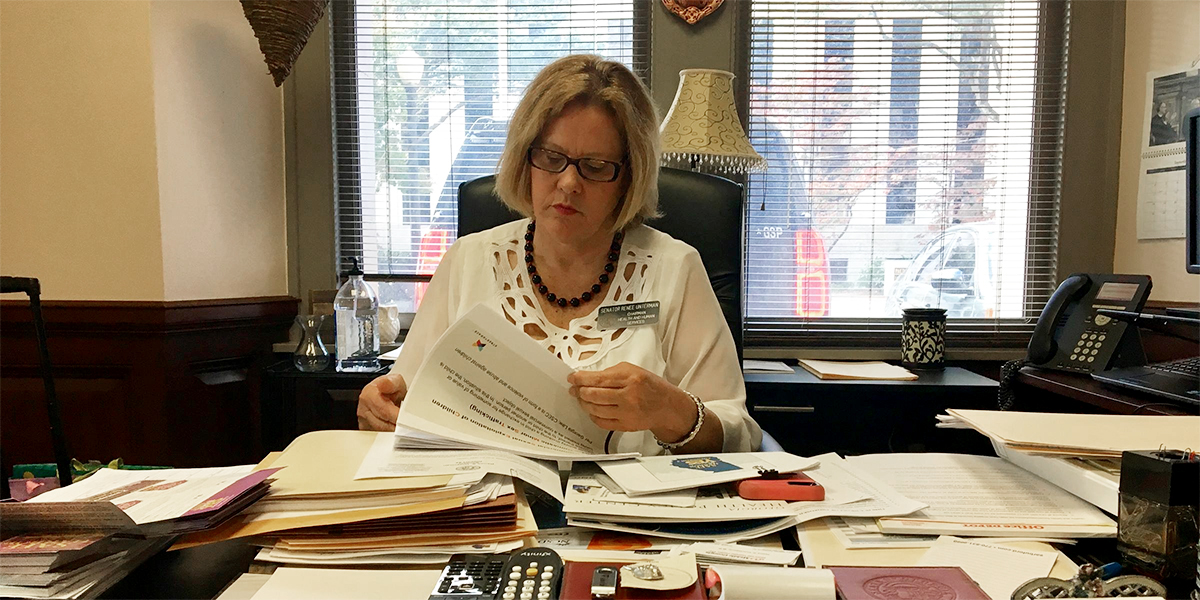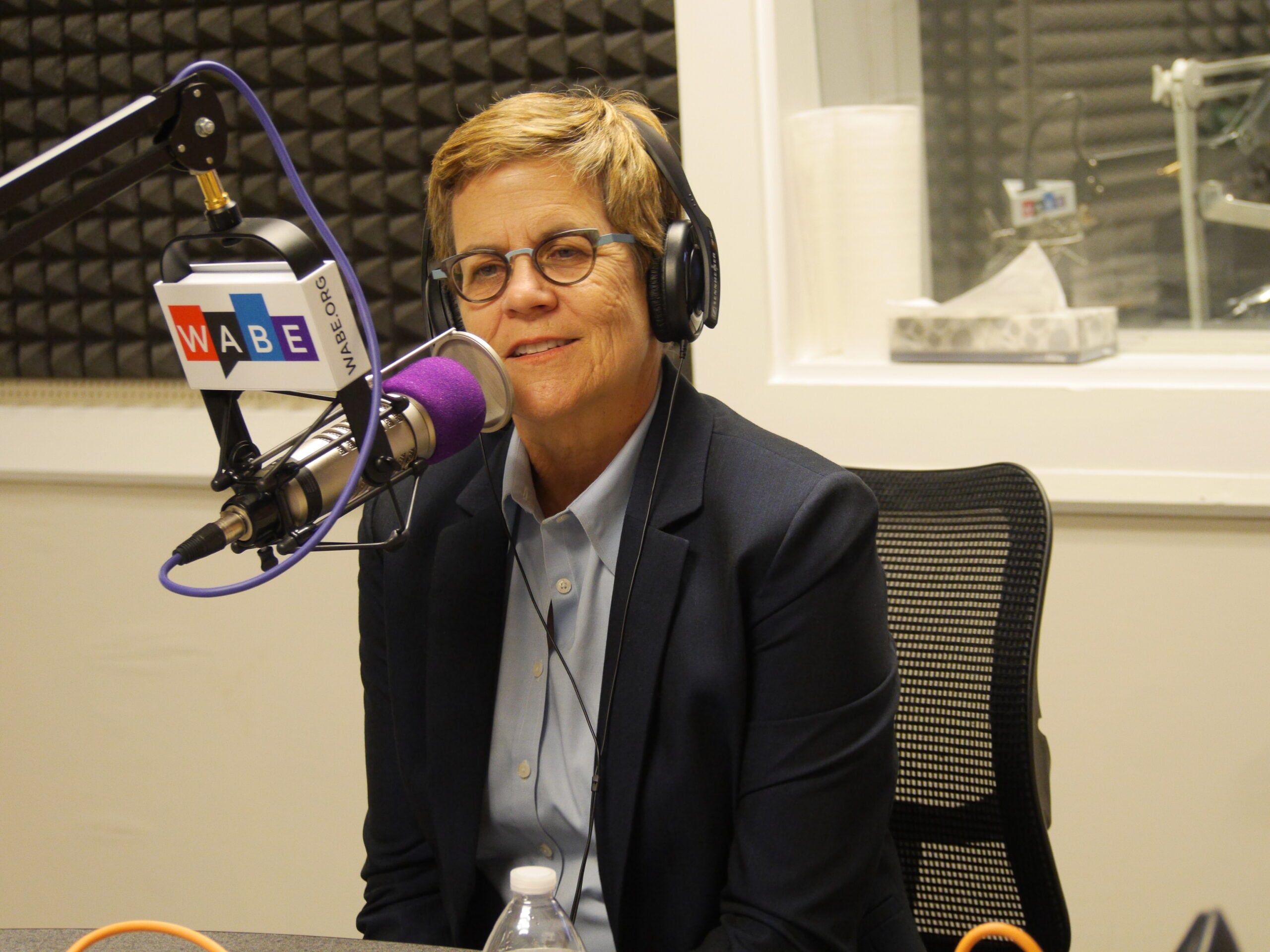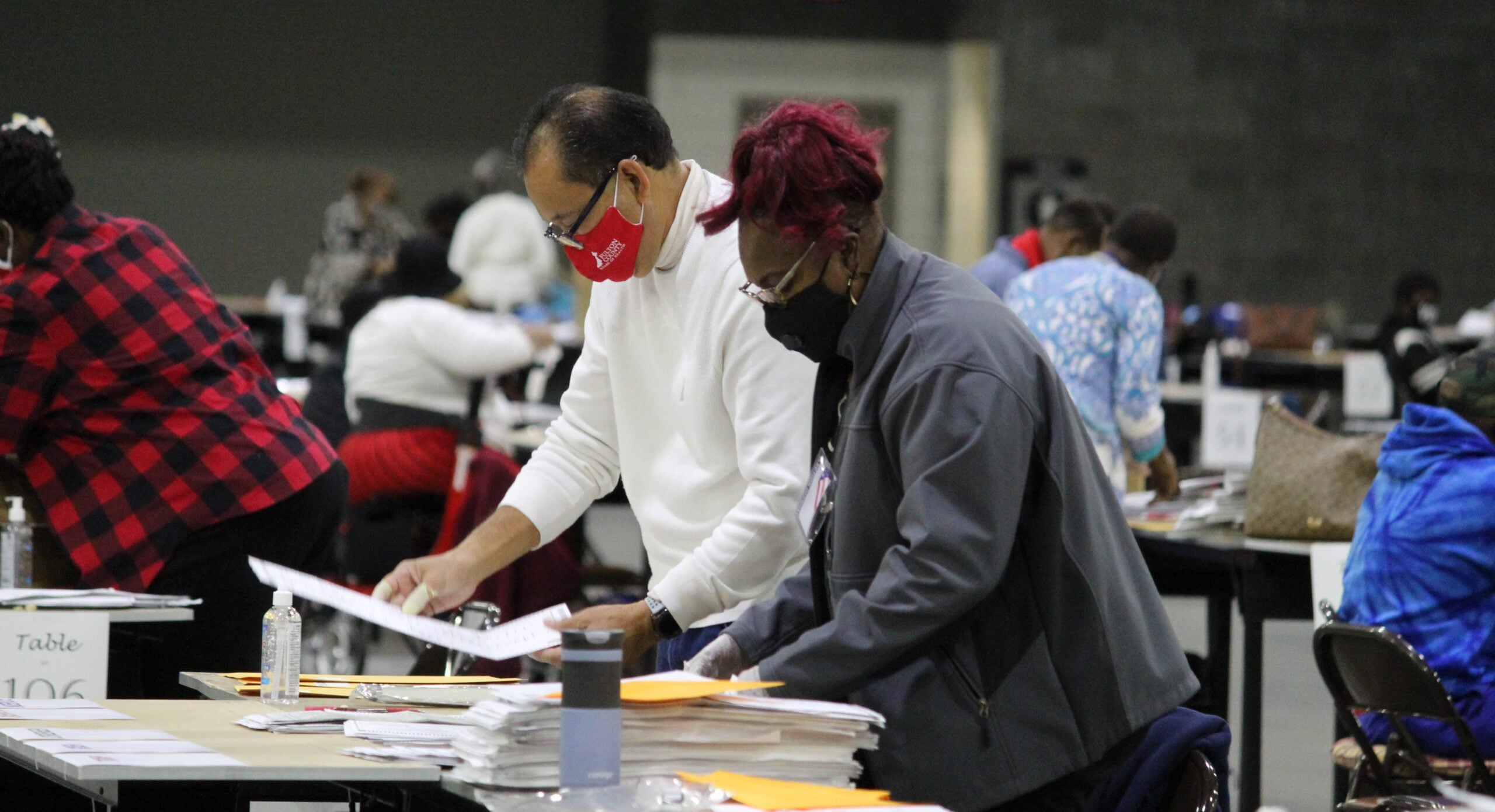Path Unclear For Ga. Amendment 2 Child Sex Trafficking Fund

Lisa Hagen / WABE
Sen. Renee Unterman and advocates want to set up a permanent fund for child sex trafficking victims.
At the very end of the ballot, Georgia voters are facing a question about how to address what some believe is a serious and growing problem in the state and beyond: child sex trafficking. If approved, Georgia will establish a permanent fund to serve this select group, based on research and statistics some worry can be distorted by extreme emotions this issue raises for many people.
If it’s adopted, the referendum will be the cherry on a legislative sundae that anti-trafficking advocates and lawmakers have been constructing since 2009.
An early step in the plan was to increase criminal penalties for people arrested on various sex crimes charges – such as pimping or purchasing sex from a minor.
The next step was to levy a $5000 or greater assessment – like a fee – on strip clubs, based on a disputed link between adult entertainment venues and trafficking crimes. That law passed last year.
The Safe Harbor Amendment, on the ballot now, will create a permanent fund from this fee and the fines people arrested on trafficking related charges.
“You know, I’ve lived through the recession as a budget writer. And we have robbed Peter to pay Paul to be able to keep our state afloat … well this assures that even if you go through a very traumatic depression or recession, that children are always going to be taken care of,” said state Sen. Renee Unterman.
The logic sounds simple enough: punish bad people – and strip clubs – and use that money to help kids in need.
To convince voters, Unterman points to a figure that disturbs her: the number of child exploitation investigations opened by the Georgia Bureau of Investigation last year.
“If you consider 4,000 cases, I consider that an epidemic,” she said.
However, the GBI told WABE those 4,000 open cases aren’t all proven instances of trafficking. In fact, in a 2014 report, the agency wrote ”While it’s largely assumed that human trafficking is both widespread and underreported in the State of Georgia, these assumptions are unsubstantiated by research.”
The GBI went on to say it found evidence of human trafficking was primarily anecdotal.
“I don’t think it’s spreading like wildfire,” said Heather Stockdale, the head of Georgia Cares, a nonprofit that acts as a hub for advocacy and service providers around this issue and works with every child trafficking victim found in the state.
“I think it has been there all along but it feels very overwhelming when it’s a new field that we don’t have research on,” Stockdale said.
She believes the sexual exploitation of children is underreported, but shies away from the big numbers Unterman and other sometimes use.
“So I think we just have to be careful. Right now, this is a very popular issue and thing people like to talk about. Because of the horrific nature of this crime, people go zero to 60 really quickly,” said Stockdale. She said she doesn’t think people intentionally try to mislead by pointing to high and inexact statistics about child sex trafficking, rather that passion and a desire to raise awareness take the lead.
The best data she has is that last year, Georgia Cares served 469 youth it identified as having been trafficked.
In this state, anyone 17 years old or younger who exchanges sexual activity for money or anything of value is considered a trafficking victim. Unlike adults, they do not have to be forced or tricked into sex acts to qualify legally for victimhood.
Stockdale does support Amendment 2. She said the organizations she works with need the money for medical and mental health providers, social workers, tutors and, crucially, housing.
“The problem is, right now, we only have 31 beds for that emergency placement,” she said. None of those beds are open to boys, transgender youth or girls who are pregnant. Stockdale said, though not all of the 469 youth they serve need those beds, it’s still a big gap.
Whether or not strip clubs are responsible for fixing all this is another question entirely.
Lawyers for Atlanta’s strip clubs argue they don’t contribute to the trafficking of children and shouldn’t have to pay for it. They say they already abide by strict government regulations.
Those lawyers say they’re waiting to see if the amendment passes before making a decision on not to sue.
Many social scientists also argue that the real origins of this problem are social factors like poverty, difficult home lives and a lack of safe housing.
“I think the focus on child sex trafficking does not look at the underlying causes of child vulnerability,” said Elena Shih, who studies the anti-trafficking movement at Brown University. She worries about the narrow focus on fighting child sex trafficking pulling resources from a social safety net that might otherwise protect children and families.
“We still don’t have enough shelters to deal with homeless children, before they make the difficult choice to do different kinds of dangerous or low wage jobs,” said Shih.
Unterman acknowledges that if the safe harbor amendment passes, Georgia has no solid game plan to effectively fight child sex trafficking.
“It is important, first of all, to be transparent and, second of all, to be outcomes-based, but when you’re in those infancy stages of creating that infrastructure, it’s like you’re fighting a fire and you want to save every child’s life. We didn’t have time to do that,” Unterman said.
She said she doesn’t know how a future state commission would decide to distribute the money raised by Amendment 2, but she says it’s a start, for the children.
9(MDAxODM0MDY4MDEyMTY4NDA3MzI3YjkzMw004))







